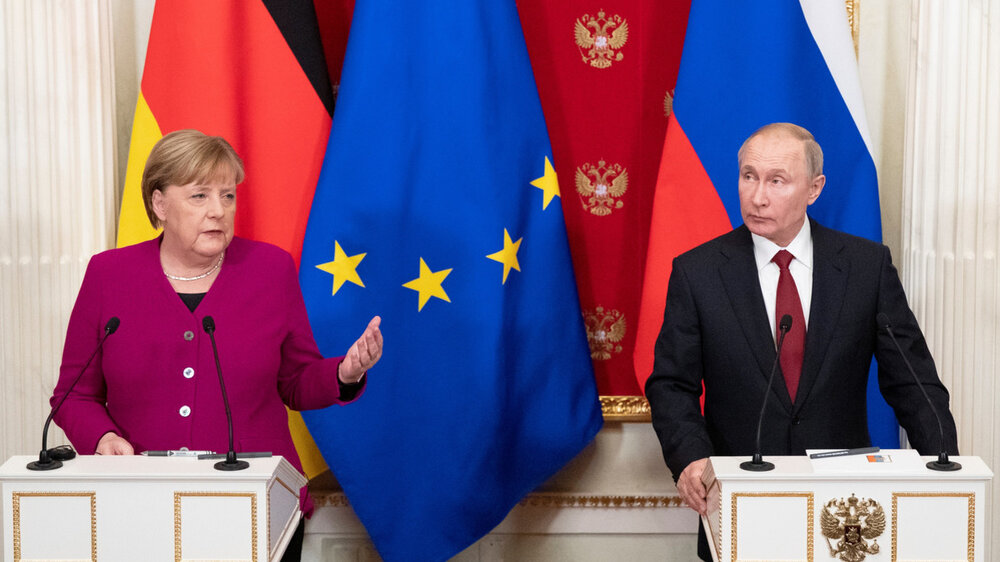Putin, Merkel agree nuclear deal should be kept by all means

Russian President Vladimir Putin and German Chancellor Angela Merkel have agreed that preserving the 2015 nuclear deal, known as the JCPOA, is a matter of “tremendous importance” and should be kept by all means necessary.
During a joint press conference in Moscow on Saturday, Merkel said that “everything must be done to keep the JCPOA going” and vowed to use “all the diplomatic tools to help this agreement.”
According to RT, Putin described the deal as “tremendously important” and said that both Moscow and Berlin agree that all parties need to “come back to the deal.”
Putin further expressed hope that a special-purpose vehicle called INSTEX, created to facilitate trade with Iran and circumvent U.S. sanctions, would soon “be up and running” and that European nations “would deliver on their promise to create an independent mechanism free of the dollar influence.”
The European Union has established INSTEX to continue trade with Iran without suffering from U.S. sanctions, however, the mechanism is yet to be operationalized.
U.S. President Donald Trump quit the nuclear deal in May 2018 and introduced the harshest ever sanctions in history on Iran as part of his administration’s “maximum pressure” campaign against Iran.
Under the JCPOA, Iran promised to put limits on its nuclear activities in exchange for the termination of economic and financial sanctions.
Britain, France, Germany, Russia, China, and Iran have been trying to salvage the pact. However, Europeans’ efforts to protect trade with Iran against the U.S. sanctions have yielded nothing concrete so far.
On May 8, exactly one year after the U.S. abandoned the deal, Tehran announced that its “strategic patience” is over and began to partially reduce its commitments to the agreement at bi-monthly intervals.
Iran’s moves are based on paragraph 36 of the JCPOA which “allows one side, under certain circumstances, to stop complying with the deal if the other side is out of compliance.”
In the first stage, Iran announced that it will not limit its stockpile of the nuclear fuel to 300 kilograms allowed under the deal. On that date (May 8) Iran’s Supreme National Security Council (SNSC) said if the remaining parties to the JCPOA, especially Europeans, devise a mechanism to protect Iran from the sanctions’ effect in the two-month deadline it will reverse its decision.
But since European parties missed the deadline, on July 7 Iran announced that it has started enriching uranium to a higher purity than the 3.67%, thereby starting the second step.
Again, as Europe missed the second 60-day deadline, Iran moved to take the third step, removing a ban on nuclear research and development (R&D).
In the fourth step, which started on November 6, Iran began injecting uranium gas into 1,044 centrifuges at the Fordow nuclear site. It was done at the presence of inspectors from the International Atomic Energy Agency (IAEA).
In its fifth and final step on January 5, Iran suspended all limits under the JCPOA.
NA/PA
Leave a Comment